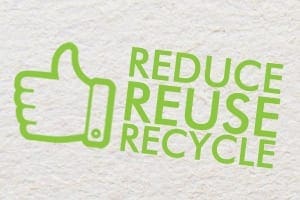2020 has caused great devastation to individuals’ personal and business lives and inevitably Global Waste. Sadly many people are dying from Covid-19 and the daily cases continue to fluctuate whilst vaccinations are underway. Covid-19 has had a detrimental effect on both global health and the economy. Businesses from various industries closed their doors to the public and employees are working from home. Schools closed and children studied from home. Unfortunately, many businesses were forced to cease trading, in particular the hospitality industry suffered as 10,000 businesses closed in the UK in 2020. Moreover, as a result of these changes, global waste has increased massively.
Whilst necessary, due to the increase in the use of PPE and single use plastics, there has been a huge increase in plastic waste including aprons, gloves, masks etc. The World Health Organisation predicted in 2020 that demand on plastics was expected to increase by 40% in packaging and 17% in other applications, including medical uses. Gov.uk concurred as when they revealed that during the year 2019, 2,432,435,000 items of PPE was delivered to the UK evidently before the pandemic. However, during the period February 2020 to February 2021, 8,681,133,000 items of PPE were distributed to the UK, emphasising the increasing demand for supply in the pandemic. Widespread concern has been highlighted as to how the environment may be impacted. In December 2020, a study by the 1st choice waste group reported that 51% of UK adults (26.7 million people) wear blue surgical masks. This equates to 53.5 million disposable masks being used every day in the UK alone. Calculating this monthly, the UK will use 1.6 billion non-biodegradable surgical masks. Non-biodegradable masks take between 20 and 30 years to breakdown if sent to landfill, causing an environmental crisis.
In addition to this there has been a significant increase in littering and fly tipping, not just of PPE but of household goods, general waste and recyclable materials. Prior to the pandemic over 1 million fly-tipping incidents where dealt with by local councils every year, equating to nearly 114 incidents per hour. Throughout Covid-19 fly-tipping has fluctuated by 300% in the UK including; vehicle parts, building waste and appliances (Map Waste, 2021).
As a result of people ‘Staying at Home’ the nation has finally found the time to carry out the odd jobs around the house and the garage clear outs that have been but on the back burner for so long. Landfill rates increased to £94.15 per tonne in April 2020 from 2019 £91.35 in 2019 a further deterrent to avoid waste being sent to landfill (Gov.UK, 2020) however, is it possible the fly tipping has occurred as a result of this increase? Moreover, skips and waste depots reduced opening hours throughout the pandemic which also may have impacted on the vast rise in fly tipping. Not only is fly tipping illegal but it also can be dangerous to human and animal health.
Before the global pandemic the world was facing many challenges regarding waste management. A study compiled by Verisk Maplecroft whom specialises in global risk found while the world produces 2.1 billion tonnes of this rubbish every year, only 16% is recycled successfully while 46% is disposed of unsustainably (BBC news, 2019).
CPRE (2020) has been calling for an ‘all-in’ deposit return incentive scheme to drastically reduce litter in the UK. ‘The small deposit acts as a financial incentive to make sure rubbish ends up where it belongs, and valuable materials are properly recycled.’
Together as a nation we must combat global waste. Everyone has a part to play in reducing, reusing and recycling waste stream successfully. Noticing the vast increase in littered waste, residents from local communities are proactively organising litter picking days. However, collected waste still needs processed and waste management companies are under heightened pressure. Dependence on technological advances are key to the successful process of waste streams. Thus, Ecohog manufacture bespoke niche machines to ensure our environment is clean but also to enable waste processors to gain more ROI from their waste streams.

